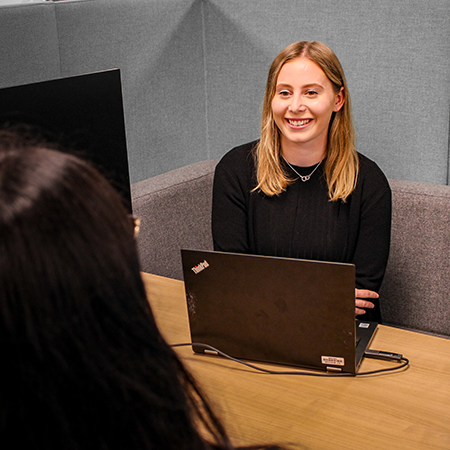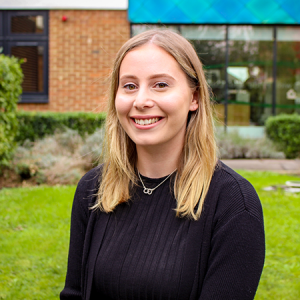Meet Rachel – Service Improvement Analyst
How long have you been in your analyst role at Thames Valley Police, and can you explain what your typical day would look like?

I’ve been in the analyst role for just over a year now. Every day is varied and every project I work on is different – some days working on smaller solo assignments, and others working in a large team on group projects. The most common project we work on as service improvement analysts are “Service Improvement Reviews”, which is a team project. My typical day working on a Service Improvement Review would involve liaising with other analysts and service improvement advisors, working together to develop evidence based findings and recommendations to improve the service we, as a police force, provide to the public.
What sort of information do you work with, and how do you use that information within your role?
As an analyst the sort of information I work with is incredibly varied. I work with a range of qualitative and quantitative data that is cross-compared to form evidence based findings. When we’re working on a Service Improvement Review project we will attend meetings and hold fieldwork interviews with officers, members of staff, and partner agencies from across the whole organisation, to generate qualitative data that can be used as evidence for the conclusions we make. We also conduct a range of quantitative data analysis, such as crime data analysis and audits in order to form a quantitative dataset. These data sources are combined to form a final report in which we use to make suggestions and recommendations on how improvements can be made to current policies and processes.
Can you give us an example of a project you’ve been part of, and how has your work contributed to it?
A piece of work that I recently completed as an analyst was a Resource Modelling project. This involved a large amount of data analysis from a variety of sources – for example, calculating the amount of time officers spend on scene at an incident and how long it takes officers to travel to an incident. We then input this data into specialist software which was used to calculate how busy officers would be and how quickly officers could attend incidents, in order to measure potential performance when considering demand and different levels of resourcing. This project allowed senior officers to make informed decisions around resourcing for our ICR (Incident and Crime Response) officers..
What sort of challenges do you come across in your role, and how do you overcome them?
I work with very large amounts of data, and sometimes this requires a quick turnaround, which can be challenging when you have multiple projects ongoing. However, I have such a supportive and hardworking team that are always willing to work together to meet challenging deadlines, which makes completing a project in a strict timescale feel exciting and worthwhile, as opposed to a challenge.
What qualities (technical or personal) make a good analyst?

One of the most important qualities to have as an analyst is the ability to think critically and problem solve. You’ll need to analyse wide ranges and sources of data, ignoring any preconceptions you may have, and make credible decisions and judgements based on that evidence and analysis. As an analyst in TVP specifically, being able to communicate and work in a team effectively is also a vital part of the role as it requires collaboration with other analysts, roles, departments, partners, senior leaders, and more on a regular basis.
What would you say to someone that was considering an analyst role at TVP?
I would say absolutely go for it. It’s interesting, rewarding and always varied. At TVP you have the opportunity to work with a range of different departments, and make a real difference in policing through data analysis and problem solving, which is incredibly fulfilling.
If you think you might be able to help protect our communities in an analyst role at Thames Valley Police, please visit our vacancies portal to find the right position for you.


 Facebook
Facebook
 Twitter
Twitter
 Linkedin
Linkedin
 Instagram
Instagram